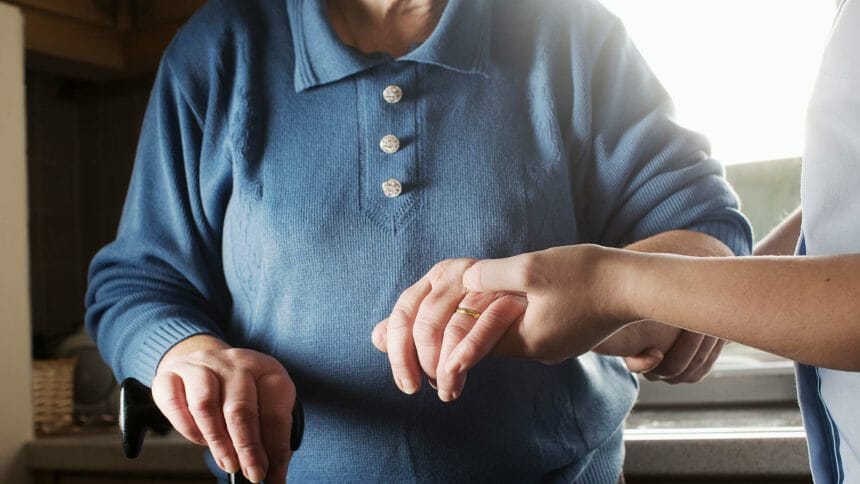
Investment in home-and-community-based care for seniors and people with disabilities is helping drive support for President Joseph Biden’s American Jobs Plan. That’s according to a new poll by think tank Data for Progress and the Real Recovery Now Coalition.
The group surveyed more than 6,400 likely voters in 10 states between late April and early May and found the majority of those polled supported the plan. Respondents also overwhelmingly supported jobs in caregiving, childcare or long-term care for seniors and people with disabilities as a way to drive economic growth.
“Voters understand that infrastructure includes the care economy. Voters understand we cannot have economic recovery without adjusting the care economy,” said Lorella Praeli of Community Change, a member of the coalition.
The president’s $1.9 trillion infrastructure plan calls for investing $400 billion in the nation’s care economy by supporting home-and-community-based services (HCBS) and increasing wages and benefits for caregivers.
The median hourly wage for caregivers is just under $13 an-hour. The coalition said raising the minimum wage to $15 could attract more people to the caregiving industry where demand for workers far outpaces supply.
“Having access to quality care requires a strong care workforce and investing in care is both good for workers who provide these essential caregiving services and necessary to enable more of us to work,” said Ai-Jen Poo, Care in Action senior adviser.
Higher wage push
The poll comes just days after aging services advocate LeadingAge called on state and local governments to use some of the $350 billion Coronavirus State and Local Fiscal Recovery Funds in the president’s American Rescue Act to beef up wages for workers in HCBS and long-term care.
“I hope every state, county and municipal government with access to these funds will consider how they can be used to help struggling care providers bounce back from the unprecedented costs of COVID and stave off the threat of foreclosure,” said Katie Smith Sloan, president and CEO of Leadine Age. “Aging services and the older adults they care for have been hit harder than many other sectors. Local officials should direct funds commensurate with the impact on aging services.”
Support for HCBS has been building as more seniors sought home-based care during the pandemic and as many of the nation’s 72 million baby boomers indicate they plan to age in their homes and communities.




